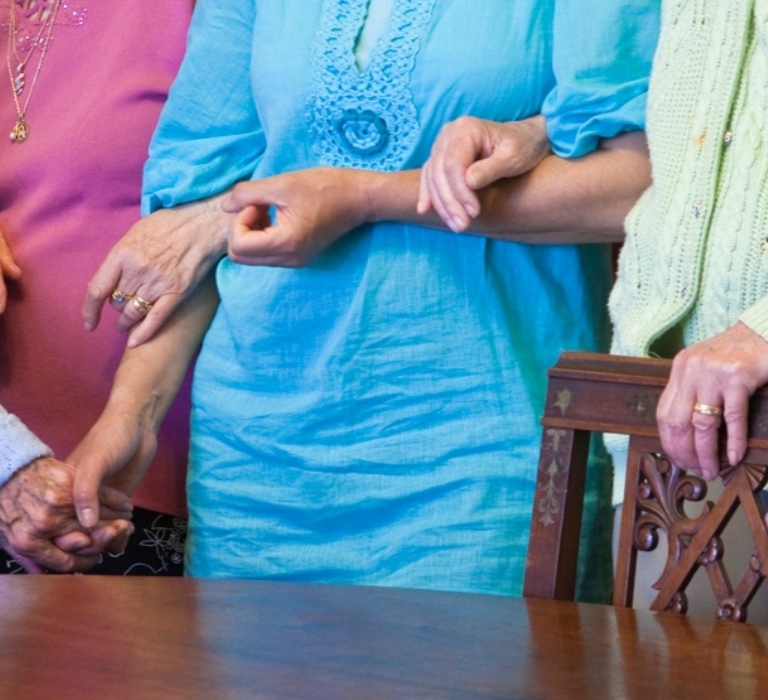Covid-19, dementia and care homes: Five years on, what has changed?
- By:
- Andrea Capstick, Ana Barbosa, Clare Mason, Giorgia Previdoli and Sue Bradbury
- Published
- Tagged under:
Nearly five years ago, we secured funding to study staff and resident experiences in dementia care homes during the Covid-19 pandemic. Today, we are asking ‘What has really changed?’

Just under five years ago, as a small team of researchers from the University of Bradford we were successful in getting internal funding to carry out a research study into the experiences of staff and residents in care homes for people living with dementia during the Covid-19 pandemic (Coronavirus, care homes and dementia, or CoDeD).
The findings from this study – which were published in journals, featured in local news stories and in a booklet for the care sector – made for shocking reading. We heard about vulnerable people living with dementia who were exposed to the virus because of the disastrous policy of discharging untested hospital patients to care homes.
We heard about staff working 18-hour shifts without any proper PPE, and about relatives driven to distraction by the fact that they were not allowed to visit family members with dementia who could not understand why suddenly no-one was coming to see them.
We also heard stories of exceptional courage and creativity; about staff pulling out all the stops to keep their residents safe and well; about the use of technology to keep people in touch; about the improvisation of PPE with the help of local manufacturing companies, vets and dentists; and about the wonder of suddenly being to sit outside in the grounds and hear different kinds of birds singing.
Our findings were later turned into a short play – Voices from the Frontline – which has since had six public performances at a variety of venues in the Bradford area, both on and off the University campus. For the fourth anniversary, we were delighted to be performing with the help of a grant from Bradford Metropolitan District Council’s Arts, Culture and heritage awards, and to have both local and national politicians among our audience.
Yet, five years after the pandemic began, we are still left asking ‘What has really changed?’ At the time we heard a great deal about ‘Building back better’, but in the aftermath of the pandemic many care home staff left the sector burnt out and exhausted . Many of them are still affected by long Covid, and the ongoing impact of the cost-of-living crisis. Neither their sacrifices nor their extraordinary efforts have been rewarded. Pay is still low, career structures are still missing.
The anniversary has been marked by renewed and well-deserved plaudits for the NHS, but where are the stories about care homes and what their staff endured behind closed doors during the year-long lockdown?
Experts say we are now only 5 to 8 years away from the next major pandemic. If they are right, can we confidently say that policy in respect of care homes would be any better, and that the mistakes at government level would be avoided next time? Unless these errors are admitted to, they seem destined to be repeated.
This is a story that needs to be told, so let’s have a renewed campaign to recognise care home staff as well as NHS workers over the months to come.
